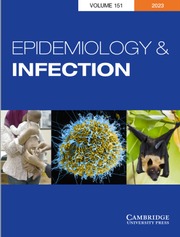Article contents
The immune response to infection with vaccinia virus in mice: II. Appearance of hypersensitivity, production of macrophage migration inhibitory factor and transformation of spleen cells in response to virus antigens
Published online by Cambridge University Press: 15 May 2009
Summary
The appearance of specific hypersensitivity to virus antigens was examined in mice infected intravenously with vaccinia virus. Both immediate hypersensitivity, transferable by serum, and delayed-type hypersensitivity, transferable only by cells, were apparent 8 days after infection and demonstrable for at least a further 130 days. Production of macrophage migration inhibitory factor by lymphocytes from infected mice was measured directly in terms of inhibition of migration by antigen or indirectly by determining the effect of soluble factors elaborated by the stimulated lymphocytes. The irregular results may have been the resultants of antigen-mediated macrophage stimulation, toxicity and induction of migration inhibitory factor. Transformation of spleen cells – presumably lymphocytes – from infected mice could be induced in vitro by virus antigens for at least 139 days after infection. Virus/lymphocyte interaction appears to be a particularly fruitful area for further study.
- Type
- Research Article
- Information
- Copyright
- Copyright © Cambridge University Press 1975
References
REFERENCES
- 2
- Cited by


